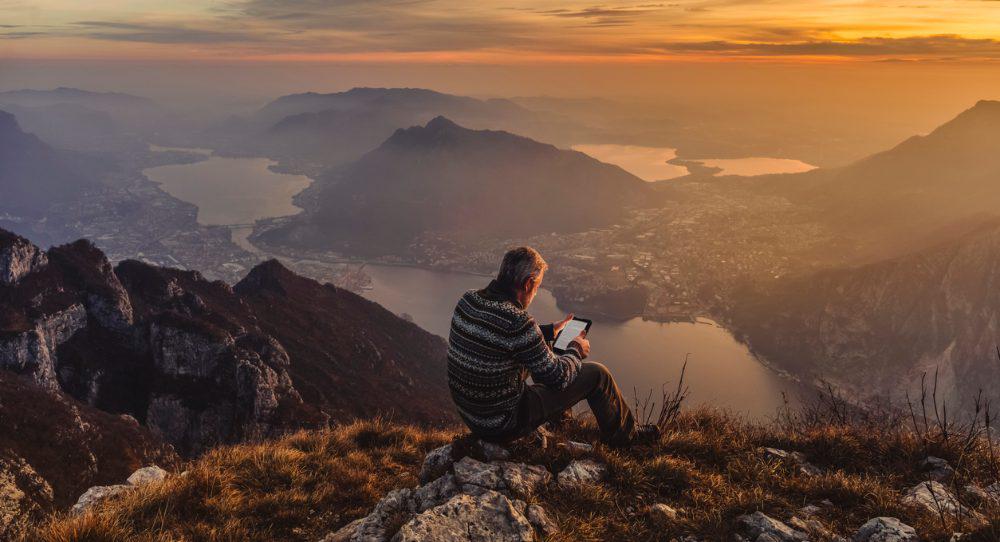Judy DempseyNonresident senior fellow at Carnegie Europe and editor in chief of Strategic Europe
Nonfiction
Memory and Theory in Eastern Europe, editors Uilleam Blacker, Alexander Etkind, and Julie Fedor. A wonderful and special collection of essays on divided memory, post-1989. Essays on Poland, Belarus, Ukraine particularly powerful.
Austerlitz by W. G. Sebald. Reread it a few weeks ago. It’s hard to describe the deep emotions and sensibilities of the protagonist who lost his identity (via a Kindertransport), struggled to find it, and traced the last steps of his parents.
Fiction
Snow. John Banville. Set in Ireland during the 1950s. Great writing, as ever. Windows on Catholic church, decline of Protestant gentry/influence, the terrible claustrophobia, and deceit.
Film, TV Series, Podcast, Exhibition, Recital
Lang Lang playing Goldberg Variations. And Wigmore Hall's livestream concerts have been a must since March 2020.
Guilty Pleasure
The Poison Will Remain. Cracker of a thriller set in France, by Fred Vargas. First time I've read her. Not the last!
Matti MaasikasHead of the EU Delegation to Ukraine
Nonfiction
Western Europe’s Democratic Age: 1945–1968, by Martin Conway. A superbly researched book that offers some universal lessons also for countries in Eastern Europe, consolidating their democracies in our era.
Fiction
Grey Bees, by Andrey Kurkov. Two men have stayed to live in a village in no-man’s-land in Eastern Ukraine, during the still ongoing conflict. Ukraine’s masterful novelist does it again, capturing the spirit of his country’s most important at this given moment.
Film, TV Series, Podcast, Exhibition, Recital
Remembering Yesterday, an exhibition in the Pinchuk Art Centre in Kyiv. Alternative views on the nation’s heritage and identity, in a strikingly frank manner, reflecting also the generational differences.
Guilty Pleasure
Vikings, a series on Canada’s History Channel. It is vital to learn who will prevail in the end—Björn Ironside or Ivar the Boneless?
Jana PuglierinHead of the Berlin office of the European Council on Foreign Relations (ECFR)
Nonfiction
I very much enjoyed reading Anne Applebaum’s Twilight of Democracy, which helped me to understand much better the challenges our democracies face and the roots of the deep polarization in many countries.
Fiction
I got hooked on reading Sally Rooney’s Normal People—actually, because ECFR Director Mark Leonard had told me that half of Britain had watched the TV series during the first lockdown.
Film, TV Series, Podcast, Exhibition, Recital
The podcast Merkel’s Last Dance hosted by Michaela Küfner gives fascinating insights into the Merkel years and into the biography and personality of the woman who was so decisive for Germany and Europe for the past sixteen years.
Guilty pleasure
Definitely too many, but I want to single out the TV series This is Us, which really comforted me many evenings on my couch during the forever semi-lockdown in Germany.
Steven ErlangerChief Diplomatic Correspondent in Europe for the New York Times
Nonfiction
I was impressed by the biography of James Baker, The Man Who Ran Washington, by Peter Baker (a colleague) and his wife, Susan Glasser. Baker was the unelected center of a Republican Party that seems to have disappeared, or gone into hiding, but was at the heart of many of the key events that made that possible.
Fiction
The End of Days (Aller Tage Abend), by Jenny Erpenbeck. Not new, but compelling—taking us through the last century of German history, from the Austro-Hungarian empire to a unified Germany, through the interrupted life of a Jewish woman who lives and dies and lives again.
Film, TV Series, Podcast, Exhibition, Recital
The Czech film of Kosinski’s haunting The Painted Bird, often hard to watch, but so compelling.
Guilty Pleasure
Spiral (Engrenages), the gritty French policier, which continues to engage.
Paul TaylorContributing Editor at Politico Europe
Nonfiction
Hard Choices by Peter Ricketts—the former UK national security adviser’s take on what the UK should do when (or perhaps if) it grows up after Brexit. Admirably lucid, concise, and enjoyable to read. An excellent antidote to “Global Britain” magical thinking.
Film, TV Series, Podcast, Exhibition, Recital
Still devouring Nordic noir series as fast as they can churn them out (Trapped—season 2 from Iceland is a nerve-jangler), plus some UK crime thrillers that give you the smell and feel of the dark corners of the kingdom—three seasons of The Fall from Northern Ireland, Hinterland from Wales (in Welsh), and Shetland from scenic northern Scotland.
When it comes to music, Beethoven piano sonatas played by the magical, understated Daniel Barenboim. No. 27 is my all-time favorite—just two movements and less well known than many, but a unique mixture of melancholy and melody.











